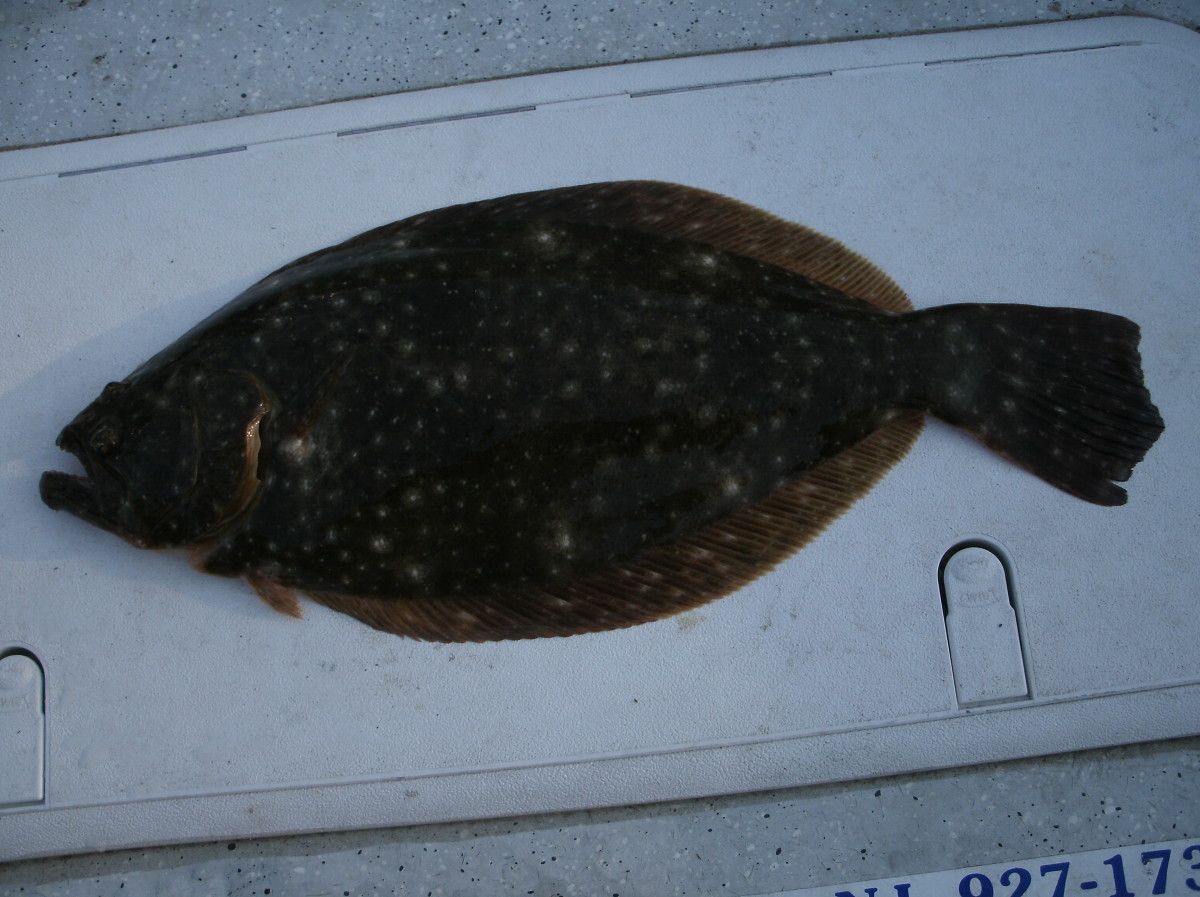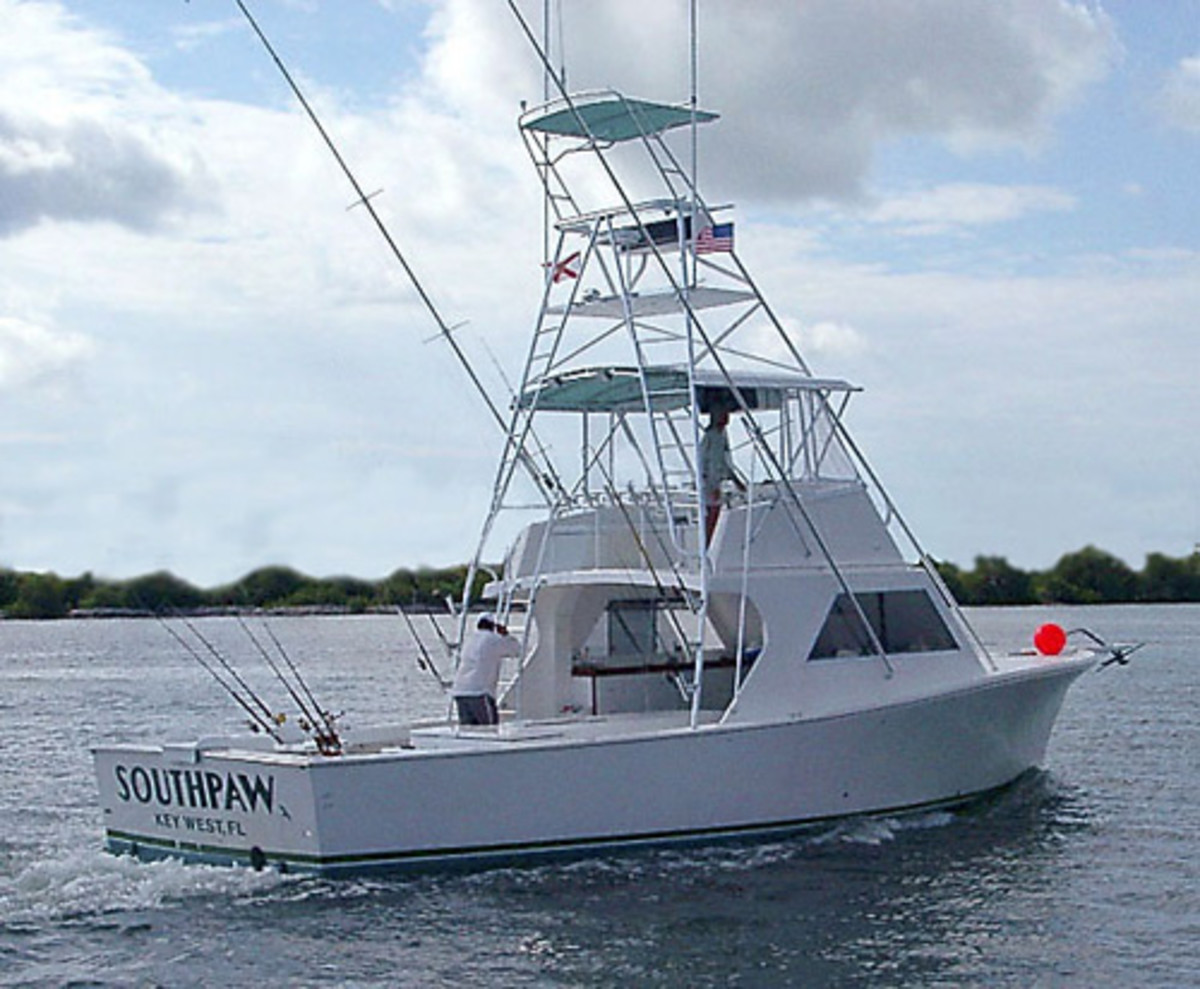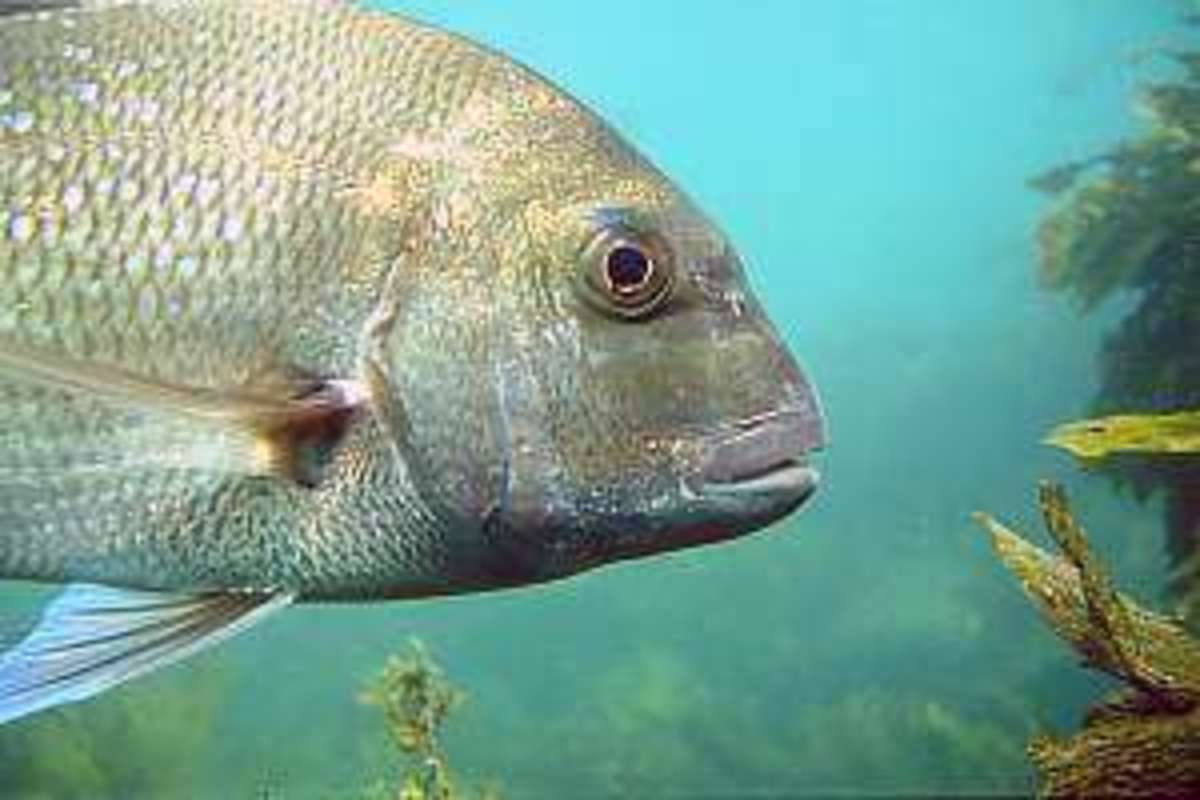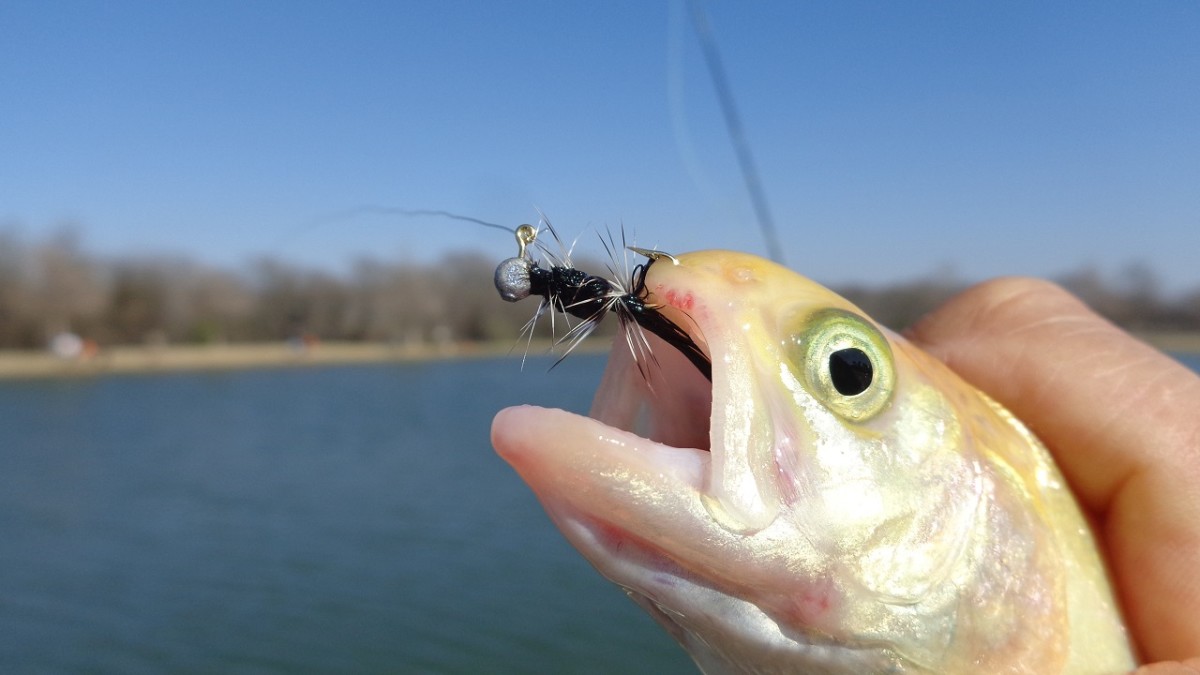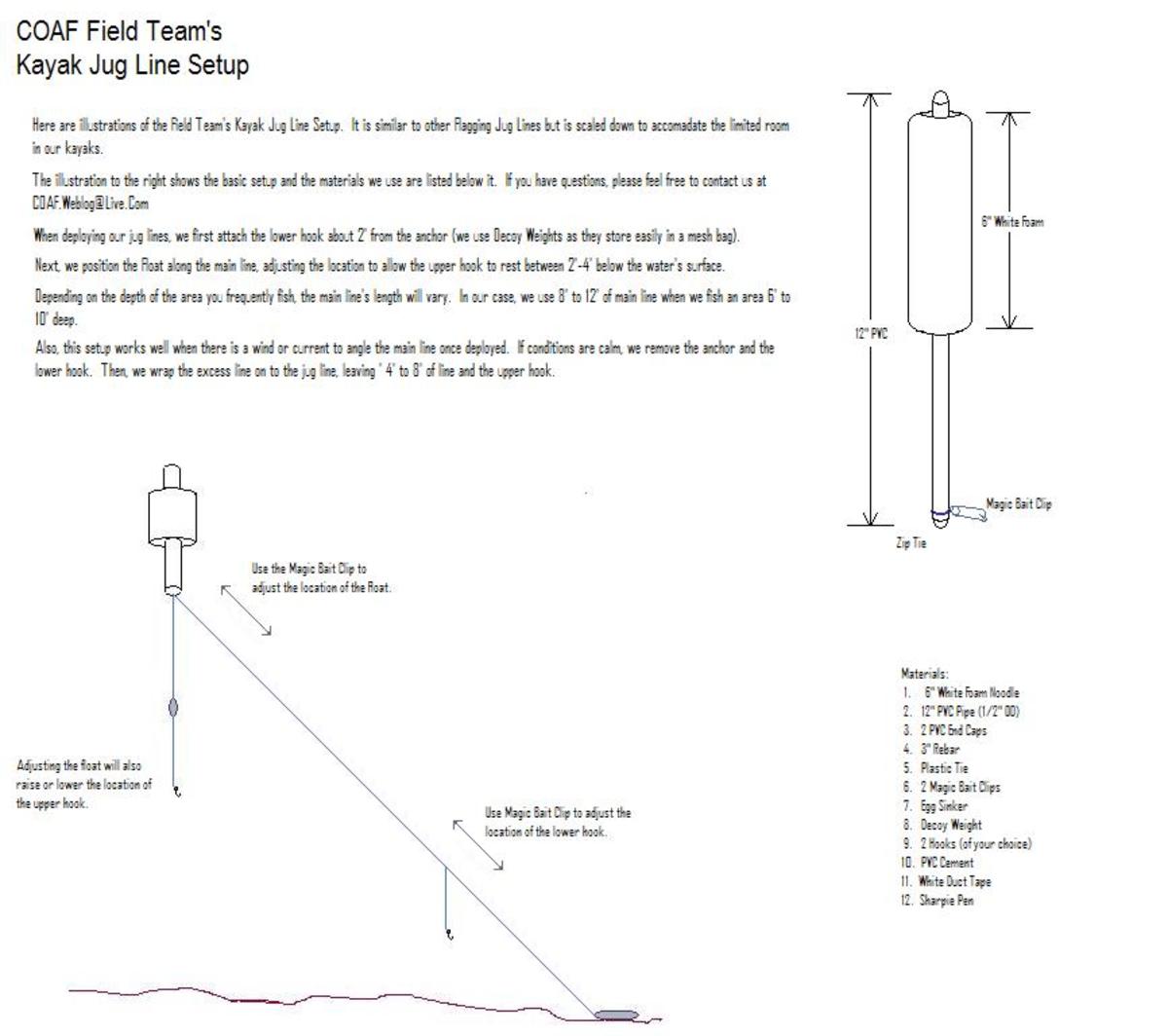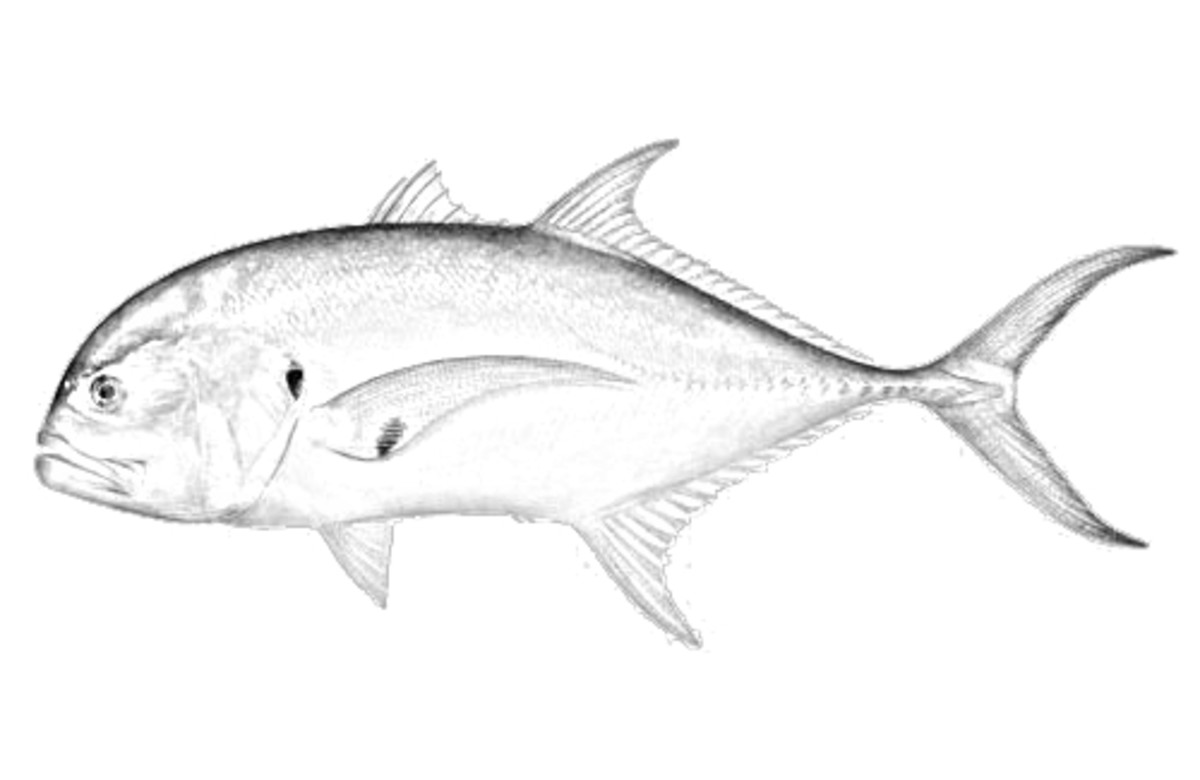When Is Fishing Offshore Safe?
Cruising to the Fishing Grounds
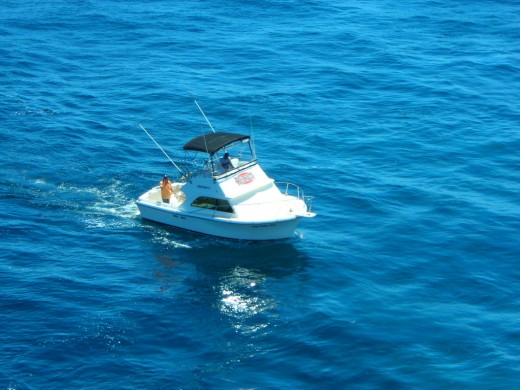
Offshore Fishing Dangers
Fishing offshore can be done at almost anytime, outside a major storm. The level of how safe or unsafe, really is dependent on the preparedness of the captain and the crew that are going out to sea. It is the captains job to make all final decisions on whether, it is a good day to go out into the ocean for a fishing adventure. There are several factors that can influence the decision making process, but the most important are: weather and sea conditions, boat maintenance, and all safety equipment is aboard and in full working order. Failure to follow a standard checklist and putting the boat, crew, and any guests in danger ultimately falls on the captains shoulders.
Novice boaters should always check with an experienced captain or local harbor master to verify that the weather and sea swell forecasts were understood properly before venturing out into the ocean. While most boat manufacturers can help inform a boat owner of the types of conditions that a vessel should be expected to be able to handle, a novice should never push a boat to the limit, until gaining years of experience at the helm.
At a bare minimum the following equipment needs to be on board the vessel before heading out to sea. It is highly advisable to carry additional equipment especially communication gear to notify the coast guard or nearby boats if the boat runs into trouble.
- Running Lights and Anchor Light
- Approved Personal Flotation Devices for All On Board the Vessel
- Class 4 Throw able Device
- Fire Extinguisher
- Audible and Visual Signaling Devices Plus Flares
- Anchor & Rope
Catching a Spanish Mackerel Offshore
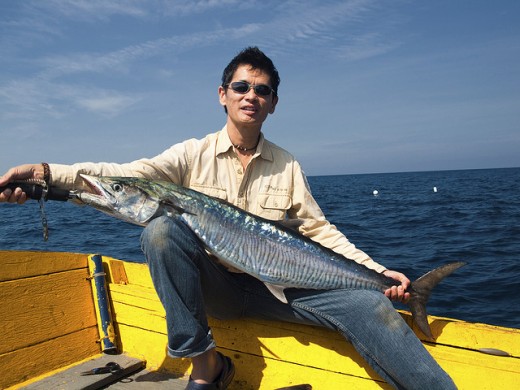
Offshore Fishing Safety
There are several things that both anglers and boat captains can do in order to make the activity of fishing safer while out at sea.
- Wear non slip sole boots. This helps eliminate lots of small injuries that occur from falling on the deck of the boat due to the wet surface and crowded space that is often the norm for most recreational fishing vessels
- Wear a life jacket. Falling overboard is a scary experience for all involved from the individual in the water and the crew on board the vessel. If the person in the water does not have a life vest on, the chance for something really bad from happening is great.
- Do not lean over rail. By making sure to keep the majority of your body weight inside the boat, it eliminates the chance for keeping knocked overboard by a wave.
- Be aware of other anglers. Keep an eye out for other anglers on the boat. When fishing for tuna, there can be many people hooked up at a single time and the fish swim in multiple directions at a fast pace, and so it is very important to be aware of everyone's position in the boat as individuals maneuver to keep the lines clear.
- Stow gear away into compartments. Whether it is a net, gaff, fishing knife, or fishing lures, it is critical to put unused equipment away into its rightful place. This keeps the deck clear of items that can cause significant harm such as a knife and allows everyone to easily get the needed equipment such as a net when landing fish without having to jump around the boat trying to find something that has been misplaced.
When fishing in the ocean, generally the anglers are either trolling lures at speed or on a stop drifting in the currents and fishing the bottom with heavy weighted rigs. These are both techniques that are relatively safe and easy for even novice anglers to do without much trouble. However, if the style of fishing involves casting from the boat it is absolutely critical to be aware of any obstructions on the boat before casting. Walking up to the bow of a boat may be the best location to cast from, but it can also be the most dangerous place to be especially if trying to get back to the stern to land the fish with the help of others on board. If casting lures way off shore make sure to take your time before casting to avoid hooking another angler or hooking the boat in the process causing a situation on the vessel.
Boat Safety Equipment Checklist
Equipment
| Product Recommendation
|
|---|---|
EPIRB (Emergency Position Indicating Radio Beacon)
| Pains Wessex 406 GPIRB
|
Visual Distress Signals (Flares, Smoke, Water Dye)
| McMurdo Pains Wessex & Ikaros Parachute Flares
|
Personal Distress Signals (Whistles, Mirrors)
| Ultimate Survival StarFlash Mirror
|
Life Jackets designed for ocean use
| Mustang Hydrostatic Inflatable High Visibility Inflatable PFD
|
Spare Boat & Motor Parts
| Spark Plugs, Spare Prop, Wrench
|
VHF-FM Marine Band Radio
| Icom IC-M604 VHF Marine Radio
|
Inflatable Life Raft
| Revere Offshore Elite Life Raft
|
Emergency water and food supplies
| Bottled water and food rations for all on board
|
Handheld GPS Unit
| Garmin GPSMAP 78sc w/ Coastal Charts
|
Immersion Suit
| IMPERIAL 1409 Series Immersion Suits
|
Personal Locator Beacon
| ACR ResQLink + PLUS 406 MHz GPS
|
Fire Extinguisher
| Kidde Mariner5 Fire Extinguisher with Pressure Gauge
|
Throw Bag and Rope
| Kwik Tek LL-1 Life Line Rescue Throw Bag
|
Ocean Boating Tips
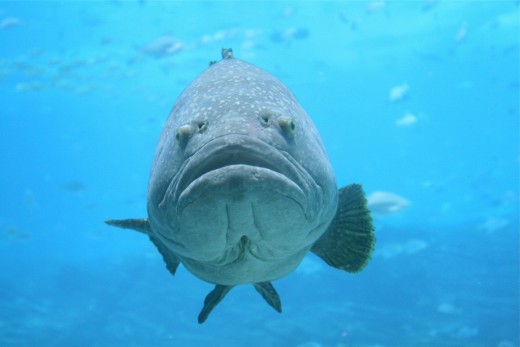
5 Offshore Fishing Safety Tips
- Have a buddy boat - don't go way offshore without having someone that can be reached out to for help in case of emergency. Working with a buddy boat can also really help improve the fishing so you can share information.
- Carry a first aid kit, always make sure to replenish your kit whenever you use it for something so you are always able to address an issue immediately.
- Check the weather, surf, and current reports. Know what your boat can handle and do not go out to sea when the conditions are going to push your boat to its limit.
- Keep all equipment well maintained. You are at the mercy of your weakest link so do your best to keep all of your gear in good performing condition.
- Remain calm and focused when fighting fish, there is often several people on board in the back of the boat, sharp hooks, gaffs, and lots of water to slip, especially when the seas are rough. Have fun and enjoy the moment, but remain focused to the task at hand and aware of everything that is going on to prevent a stupid injury from happening.

